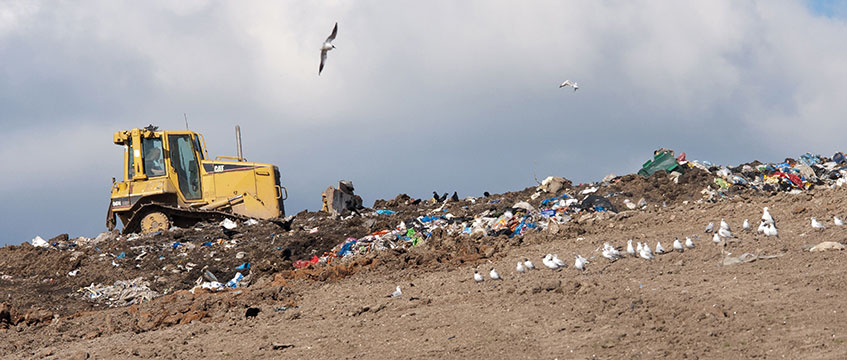A Lisburn resident who has been campaigning against noxious odours and emissions from a nearby landfill site has won her case in the Supreme Court today. It is said to be the first Northern Irish environmental case to be ruled on by the court, which was set up 15 years ago this month.
The case focuses on how residents in Northern Ireland can take legal action about nuisance such as smells or noises emanating from land.
The Clean Neighbourhoods and Environment Act (Northern Ireland) 2011 gives local authorities powers and duties relating to nuisances occurring in their areas. The same Act also permits citizens to bring private prosecutions. Additionally, the Northern Ireland Environment Agency (NIEA) regulates landfill sites.
The site at the centre of the case is the Mullaghglass landfill site outside Lisburn, which closed last year. Locals have been complaining about it for a number of years.
Lisburn resident Noeleen McAleenon brought the case. She says her family has suffered headaches, nausea and stomach problems caused by odours and gasses emitted by the site. She also says they felt forced to remain inside, causing mental health problems. She complained to the council, the NIEA and the Northern Ireland Department of Agriculture, Environment and Rural Affairs.
Unsatisfied with their response, she brought a judicial review against the authorities, saying they hadn’t properly fulfilled their responsibilities. She lost in the Court of Appeal, with judges ruling she had “alternative remedies” open to her: a private prosecution, a civil case of nuisance against the landfill site’s operator and a complaint to the ombudsman.
She appealed to the Supreme Court in London, which today backed her case. The judges in today’s ruling said it wasn’t the job of the court or local authorities to choose how McAleenon should bring her case.
“Ms McAleenon brought a judicial review claim against the defendant regulators in order to compel them to fulfil the public law duties to which she maintained they were subject, for which claim the judicial review procedure was well adapted and appropriate,” the judgment said.
“The fact that she could have brought other proceedings, of a different nature (a nuisance claim or a private prosecution), directed against another party [the operator of the site], in which different issues would arise and in light of which different procedures would have been required to be followed to resolve those issues, did not show that she had a suitable alternative remedy with regard to the claim she did wish to bring, which was to challenge the conduct of the defendant regulators.”
The judges added that there was “no good reason” that McAleenon should be expected to bring a private prosecution, which would be much more complicated and expensive than a judicial review. They added that ombudsmen are intended to supplement, not replace, court procedures.
The judges said the case should be sent back to the Court of Appeal for further consideration.
McAleenon, Re Application for Judicial Review (Northern Ireland)
[2024] UKSC 31
Supreme Court (Lord Lloyd-Jones, Lord Briggs, Lord Sales, Lord Stephens, Lady Simler) 16 October 2024
Photo © FLPA/Shutterstock
Share your feedback








